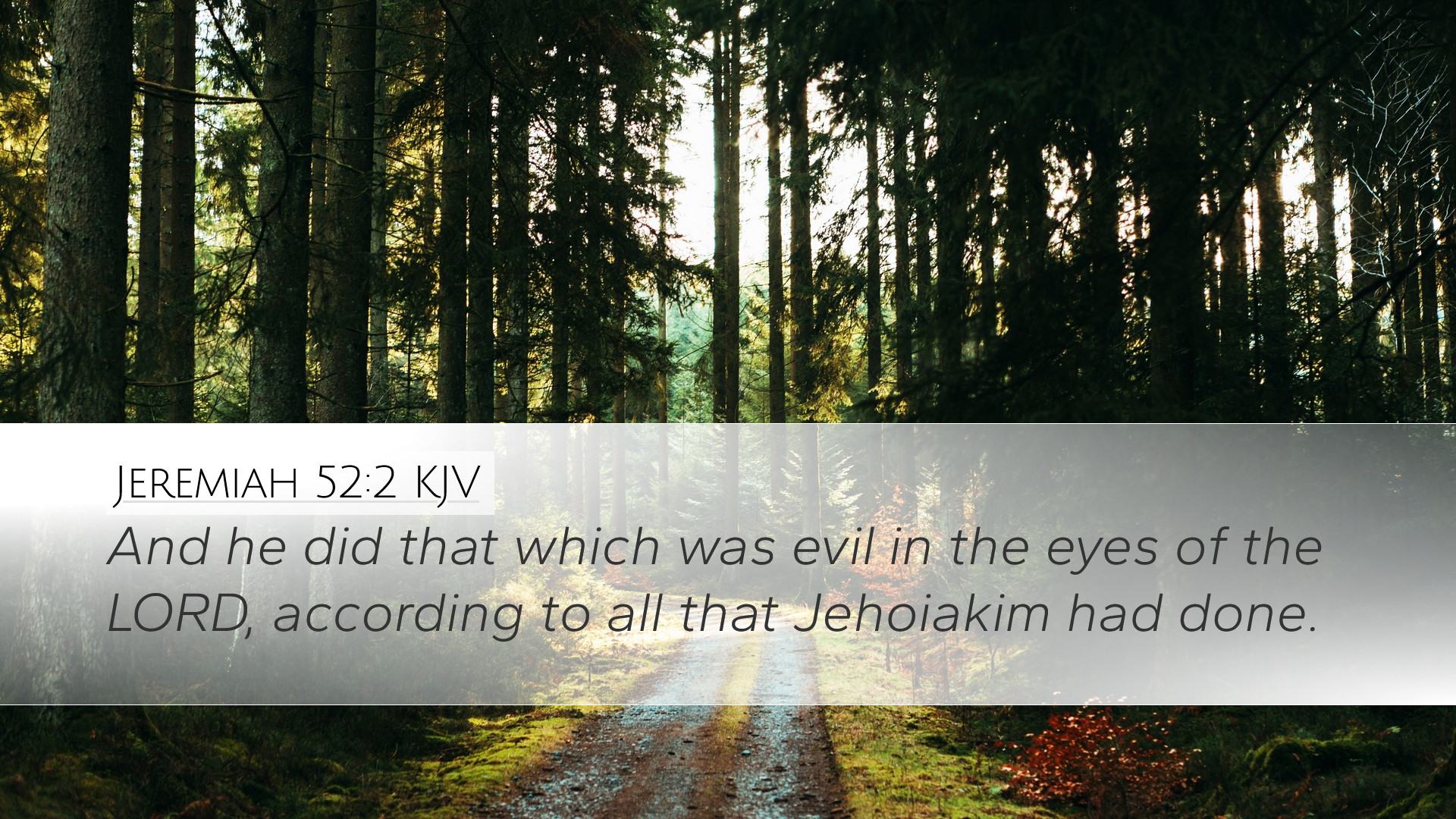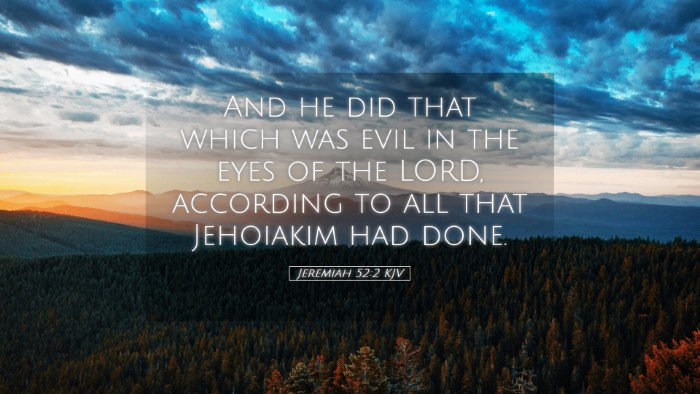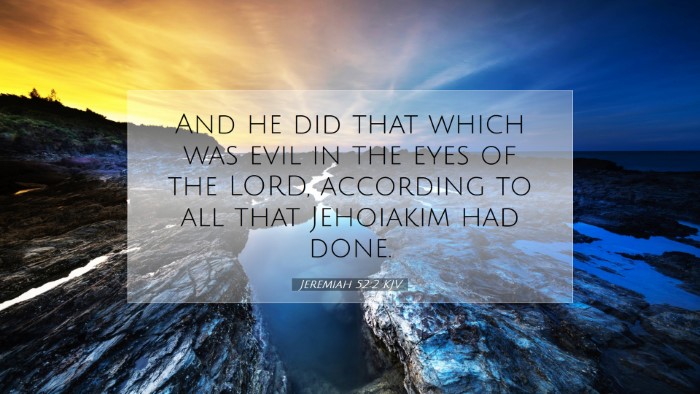Commentary on Jeremiah 52:2
Jeremiah 52:2 reads, "And he did that which was evil in the eyes of the LORD, according to all that Jehoiakim had done." This passage serves as a concluding remark in the narrative of King Zedekiah's reign and provides significant insight into the state of Judah during the final days before the Babylonian conquest.
Contextual Overview
The book of Jeremiah is one of the most poignant texts in the Old Testament, chronicling the prophetic ministry of Jeremiah during a tumultuous period in Israel's history. Jeremiah's prophecies often underscore the themes of judgment and restoration, framing the narrative surrounding the decline of Judah with a divine perspective.
The Significance of Zedekiah's Reign
King Zedekiah, the last king of Judah, is portrayed in this passage as a ruler who leads his nation into further disobedience. The summary of Zedekiah's actions reflects the overall spiritual decline of Judah, echoing the sins of his predecessor, Jehoiakim. By examining Zedekiah's reign, one can see a continual pattern of rebellion against God's covenant and the warnings given through the prophet Jeremiah.
The Nature of Evil in Leadership
Matthew Henry emphasizes the moral implications of Zedekiah's rule, indicating that leaders bear a tremendous responsibility for the spiritual welfare of their people. His actions, described as 'evil,' reaffirm that godly leadership is crucial in establishing righteousness in society.
Accountability of Leaders
Henry notes that Zedekiah's disregard for divine commandments led not only to his moral failure but also to national calamity. This serves as a reminder for contemporary leaders in both ecclesiastical and secular realms regarding the far-reaching consequences of their decisions, highlighting a theme of accountability that transcends time.
Historical and Theological Insights
Albert Barnes provides a historical perspective on Zedekiah's alignment with the actions of Jehoiakim. Both kings are characterized by their opposition to God's commandments, ultimately leading to the downfall of their kingdom. Barnes elucidates that Zedekiah’s failure to heed prophetic warnings and his lack of fortitude in his leadership role can be linked to a broader theological theme of judgment and mercy.
The Role of Prophetic Witness
Jeremiah's continued presence during Zedekiah's reign positions him as a vital witness to the dangers of rebellion against God. This underscores the Biblical doctrine that divine judgment is often accompanied by calls for repentance and the mercy offered to those who turn back to God.
Reflection on Obedience and Sin
Adam Clarke delves into the implications of sin within the context of leadership. He highlights that Zedekiah's actions represent a systemic failure to pursue holiness, often mirroring the spiritual state of the nation. Clarke meticulously examines the phrase "according to all that Jehoiakim had done" as indicative of the inherited legacy of sin and its effects on successive generations.
The Corruption of Society
Clarke further states that societal corruption can often be traced back to its leaders. The cynicism and disobedience displayed by Zedekiah reflect a broader malaise affecting the populace, revealing the intricate relationship between leadership and the moral compass of a nation.
Lessons for Today
- The Importance of Righteous Leadership: The passage reminds modern leaders of the weighty responsibility they carry to lead with integrity and righteousness.
- Consequences of Disobedience: Just as Judah faced dire consequences for their collective disobedience, contemporary society is called to heed the teachings of scripture to avoid similar judgments.
- The Role of Accountability: Zedekiah’s reign illustrates the essential nature of accountability in leadership, both in moral and ethical dimensions.
- God’s Mercy Amidst Judgment: The narrative encompasses themes of hope, underscoring that while judgment may come, God’s mercy remains available to those who repent.
Conclusion
Jeremiah 52:2 encapsulates a critical moment in Israel's history, acting as a window into the spiritual decline that ensued under flawed leadership. By synthesizing insights from public domain commentaries, we glean timeless truths that resonate today—challenging leaders, scholars, and followers alike to examine their paths and pursue righteousness in the face of adversity. The warnings echoed in the lives of Zedekiah and Jehoiakim ought to inspire today's leaders to seek divine guidance and the fortitude to uphold justice, mercy, and accountability.


